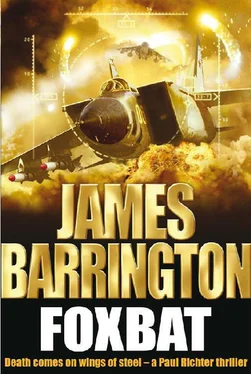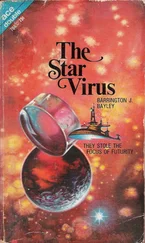‘The notebook?’ Richter prompted, in Russian. He wasn’t there to listen to a lecture on cold-water survival criteria.
The pathologist looked at him as if seeing him for the first time. ‘Just a moment,’ he said, and pushed his way back through the door. He returned in a few moments holding a plastic bag inside which there was a small notebook with a blue cover.
‘We dried it out as best we could. Some of the pages are still stuck together, but most can now be separated. Its owner used a ball-point pen rather than ink, so what’s there is fairly legible.’
He handed the bag to Bykov, who looked at it questioningly.
Marshek shook his head. ‘It’s already been checked, and there aren’t any fingerprints. I would be amazed if there had been, after immersion in the river overnight. When you’ve finished looking at it, please leave it with the receptionist on your way out.’
Bykov merely nodded, then pulled the notebook out of the bag and opened it on the table in front of Richter. Only the first dozen or so pages had been used, and most of what was recorded there was not in either the Roman or Cyrillic alphabets. Instead, the notes used some form of pictogram, interspersed with the occasional word in Russian.
‘Do you recognize it?’ Bykov asked.
Richter shook his head. ‘It if isn’t a pictorial code of some kind, it has to be one of the Oriental languages – like Chinese or maybe Japanese – but I don’t know enough to even recognize which. You must have people on your staff who could identify it?’
‘Of course. The trouble is, they’re back at headquarters, not out here in Perm. I’ll need to scan these pages and email them to Moscow.’
‘What about the words written in Cyrillic? Do any of those mean anything to you?’
Bykov flipped through the pages rapidly, shaking his head occasionally. ‘No, nothing here. These are just the names of towns and cities, perhaps where they’d developed contacts. It was probably easier to use the Russian name instead of trying to transcribe it into the other language they used. Look here. That’s “Moscow”, then “Letneozerskiy” – where two MiG-25s went missing, and so on.’ His voice died away as he stared at two words on the last page.
‘What does it say?’ Richter asked.
‘Slavgorod North,’ Bykov said, clearly puzzled. ‘But I’ve not been notified of anything happening there, and they don’t even operate MiG-25s as far as I recall.’
‘Where is it, exactly?’
‘It’s a military airfield lying about sixteen hundred kilometres east of here.’
‘That falls well within the cruising range of a MiG-25, so if they’d managed to persuade Lenkov to steal one, maybe they were intending to refuel it there before flying it out of the country. We need to go there immediately, Viktor.’
‘I agree.’ Bykov nodded. ‘We can’t handle something this sensitive over the telephone. I’ll get the jet warmed up.’
That, Richter reflected as the Russian general pulled a mobile phone from his pocket and began dialling a number, sounded more impressive than it was in reality.
They’d flown to Perm in a Russian Air Force Antonov An-72 transport aircraft, confusingly painted in Aeroflot livery. Known to the West by the NATO reporting name ‘Coaler’, it wasn’t exactly an executive jet, having been designed as a small, general-purpose STOL transport capable of carrying either cargo or up to thirty-two passengers on drop-down seats attached along the sides of the cabin. Powered by two Lotarev turbofan engines, mounted above and in front of the wings, which gave the aircraft a peculiarly hunched appearance, it was reasonably fast and had a range of well over two thousand miles.
Their journey out from Moscow had been very noisy and relatively uncomfortable, but a lot faster than trying to get seats on a commercial aircraft. And anyway it was, Richter guessed, the only aircraft Bykov had been able to commandeer at such short notice. As the Russian general headed for the door, Richter again wished he’d had the foresight to bring earplugs.
T’ae’tan Air Base, North Korea
By late morning, the last of the departing MiG-25s had lifted into the air and roared away from T’ae’tan, heading for Wonsan. It was the final departure Pak Je-San had scheduled. This particular Foxbat had originally been one of the first flights planned, but it had gone unserviceable on engine start. Fortunately, it involved a relatively minor problem that the maintainers had rectified within a couple of hours, so the only subsequent delay was having to wait for a clear window between the regular surveillance satellite overflights. Once Pak felt confident none was within range, he had ordered the aircraft to be towed out of the hangar and started up. Just five minutes later it had accelerated down the runway.
Arranging the road convoys had presented far less of a problem, and considerably less of a security headache. There had been no mechanical problems at all with the trucks, and he was now merely waiting for final confirmation that they’d arrived safely at their destinations. That, however, would not take place before early evening at the soonest.
Thursday
Slavgorod North, Russia
The Antonov An-72 transport aircraft touched down smoothly, the powerful brakes and reverse thrust stopping it within a remarkably short distance. This aircraft had been designed specifically for short-field operations.
As the Coaler turned off the runway, Richter glanced out of the window and noticed a hulking shape on the far side of the airfield.
‘That’s interesting.’ He raised his voice over the noise of the engines. ‘There’s a Condor parked over there.’
‘A what?’
‘A Condor – an Antonov An-124.’
Even bigger than the massive American C-5 Galaxy, the Condor, which the Russians call a ‘Ruslan’, is the world’s biggest aircraft. It was originally designed by the Antonov Bureau to transport a complete SS-20 intercontinental ballistic missile system. It has an enormous payload of one hundred and fifty thousand kilograms – nearly one hundred and fifty tons – and has an eighty-eight-seat passenger cabin located behind the wing. It’s able to transport almost anything, including main battle tanks and helicopters. And, as it immediately occurred to Richter, fighter aircraft.
‘That could be the link we’re looking for,’ he said. ‘Maybe the Foxbats aren’t being flown out of Russia. Maybe these comedians have organized heavy transport aircraft to take them to their ultimate destination. You might be able to get one inside that Antonov.’
Bykov crossed the cabin and looked out. ‘The MiG-25’s bigger than you think, Paul. Unless you took the wings and rudders off, it simply wouldn’t fit in there. And disassembling the MiG is a major job. Trust me, it would be much easier to fly it out of the country.’
Slavgorod North’s commanding officer, a Russian Air Force colonel named Denikin, didn’t look pleased to see them. Bykov had called him from the An-72 shortly after they took off from Bolshoye Savino, and clearly the prospect of a GRU general with an unnamed but obviously non-Russian ‘assistant’ poking around his airfield didn’t appeal to him.
‘We’ll need to speak to the crew of that Ruslan you’ve got parked on the airfield,’ Bykov informed him, ‘but first I want to check all your transit and aircraft movement orders.’
‘Very well,’ Denikin said stiffly, and gestured for them to follow him. He led the way into the Operations Room, a large square space with staff working at benches along the walls, and across to a plotting table. There he pulled two loose-leaf binders from a shelf and opened them. ‘This folder contains all the movement orders we’ve received during the last two months, and these ones here are the transit orders for the same period. May I ask what you’re looking for?’
Читать дальше












